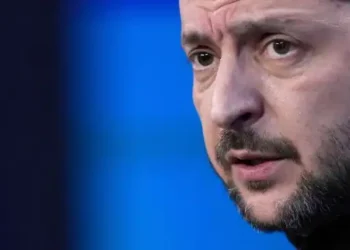British Prime Minister Keir Starmer has called on Israeli Prime Minister Benjamin Netanyahu to reverse his government’s plan to seize Gaza City, warning the move would only result in further devastation and suffering.
Starmer said the decision to intensify military operations in Gaza, where tens of thousands of Palestinians have been killed over the past 22 months and famine looms, will do nothing to advance peace or secure the release of Israeli hostages.
“Every day, the humanitarian crisis in Gaza worsens, and hostages taken by Hamas are being held in appalling and inhuman conditions. What we need is a ceasefire, a surge in humanitarian aid, the release of all hostages by Hamas, and a negotiated solution.”
Prime Minister Keir Starmer
His remarks came in response to Israel’s security cabinet approving a plan to take control of Gaza City following a marathon overnight session that began on Thursday. While the plan falls short of a full occupation of Gaza, as Netanyahu initially intended, it nonetheless marks a significant escalation.
Starmer urged both Israel and Hamas to de-escalate the fighting and commit to negotiations, warning that without serious dialogue, the hope for a two-state solution is rapidly fading.
“Our message is clear: a diplomatic solution is possible, but both parties must step away from the path of destruction,” he added.
Several Nations Condemn Israeli Offensive Plan
Several countries, including Turkey and Finland, have publicly criticized the Israeli government’s plan, urging a move toward de-escalation and peace.
Domestically, criticism of Netanyahu’s strategy has also intensified. Ed Davey, leader of the Liberal Democrats, claimed that the Israeli prime minister’s aim appeared to be “ethnic cleansing” in Gaza. Davey called on Starmer to halt arms exports to Israel and to impose sanctions on Netanyahu and his senior ministers.
Energy Minister Miatta Fahnbulleh also condemned the plan during an interview with Sky News. “We think that it will risk escalating an already intolerable situation, and the consequence will be more bloodshed,” she said. “There’s no one that can see what is happening and unfolding in Gaza that isn’t horrified by it.” Fahnbulleh added that securing a ceasefire must remain the UK’s foremost diplomatic objective.
“Our priority is, in order to try and get a ceasefire, we’ve got to get parties around the table. I know it feels incredibly hard given the current situation, but it has to be the priority.”
Energy Minister Miatta Fahnbulleh

The latest Israeli military plan, though scaled back, has reportedly sparked concern even within Israel’s own military leadership. According to local media, Israel’s top general voiced opposition, warning that such an operation could place the estimated 20 remaining hostages in greater danger and overextend Israel’s already strained armed forces.
The families of Israeli hostages are also expressing alarm. Many fear that launching a large-scale offensive on Gaza City will further jeopardize the lives of their loved ones held by Hamas.
Before the cabinet meeting, Netanyahu had laid out an ambitious vision of taking full control of Gaza and then transferring governance of the region to Arab states aligned against Hamas. However, Friday’s approved version fell short of that broader goal, reflecting mounting internal and external pressure.
Starmer has taken a strong stance on the matter, indicating that if Israel fails to agree to a ceasefire and begin a pathway toward a two-state solution, the UK will unilaterally recognise the state of Palestine before the UN General Assembly in September.
As the humanitarian crisis deepens and international outcry grows, pressure continues to mount on all parties involved to halt the violence and pursue a diplomatic path forward.
READ ALSO: Forensic Analyst Calls for Full-Scale Probe into Helicopter Crash



















